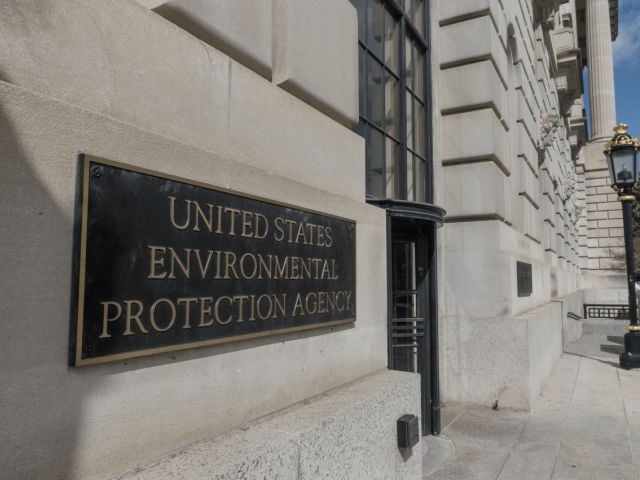
Taxpayers, Soil and Water Win Over the Ethanol Lobby
Something remarkable happened in Washington last week. In a historic, game-changing vote, the Senate voted to put America’s taxpayers and its soil and water ahead of special interests and the corn ethanol lobby.
For more than 75 years, lobbyists for agri-businesses and commodity growers have worked hand-in-glove with certain farm state lawmakers to ensure that the subsidy wagon was fully loaded. But in an overwhelming vote of 73-to-27, that wagon finally lost a wheel. After 33 years of taxpayer-subsidized ethanol, the lawmakers saw through the corn growers’ shortsighted talking points and slanted, industry-funded studies and voted to kill a 45-cent per gallon ethanol tax credit, which pays oil companies $6 billion per year to blend ethanol with gasoline.
Because of a brave effort led by Sens. Dianne Feinstein (D-Calif.) and Tom Coburn (R-Okla.) to drop the credit from the Economic Development Revitalization Act (S. 782), truth and common sense finally won. The once irresistible agriculture lobby was stopped short by a broad and unbending coalition of taxpayer advocates, environmental groups, livestock and dairy farmers, hunger and development organizations, public interest groups, independent economists and many others, because they had the facts on their side.
Work Does Not End Here
We at Environmental Working Group welcome this vote and hope it marks a turning of the tide, but we know that the ethanol interests are not about to give up.
Not content with a binding federal Renewable Fuels Standard that mandates the sale of 15 billion gallons a year of ethanol, the industry is working hard to persuade the Senate to use taxpayer money to subsidize it in new ways – by underwriting ethanol blender pumps in gas stations, tanks, pipelines and other “infrastructure.” And unfortunately, the Senate failed to follow through on its historic excise tax vote. On the very same day, it rejected an amendment offered by Sen. John McCain (R-Ariz.) to bar the use of federal funds for ethanol blender pumps and storage tanks. Thankfully, the House went the other way, voting 283-to-128 in favor of a similar bill by Rep. Jeff Flake (R-Ariz.), so the effort is not dead.
If these infrastructure investments are truly worthwhile, the industry should have no trouble attracting private investors. But the reality is that it will take a lot more work to demonstrate to lawmakers in both chambers that these market-distorting programs will simply lock in corn ethanol and lock out other cleaner, alternative fuels. The ethanol industry’s goal is to eat into competing mandates for cellulosic and advanced biofuels that may have far greater potential to actually reduce dependence on foreign oil and benefit the environment.
Looking Forward
Let’s hope that last week’s vote on the tax credit means that the Senate is finally working up the political will to end for good more than 30 years of subsidies that pressure farmers to plant environmentally-sensitive land and push up food prices. Despite the senators’ backsliding on the infrastructure amendment, the huge margin on the tax credit vote showed that lawmakers looking for ways to cut the deficit and grow the economy are finally willing to take aim at never-ending subsidies for mature industries. It’s time to move toward biofuels made from crops that conserve soil and water, use fewer cancer-causing pesticides and herbicides and require little or no fossil fuels to produce.
Last but certainly not least, the vote showed Americans that at least some in Washington are able to see through false advertising, special interests and the powerful ag lobby.
Our growing coalition will work with its Congressional champions to capitalize on these votes and continue to knock the other wheels off the corn ethanol subsidy wagon. But our work will not end there. It never does.
Sen. McCain pointed out on the Senate floor last Thursday that “lobbyists have convinced the USDA to change the rules of the Rural Energy for America Program to pay for new [ethanol-blending] gas pumps at retail stations at the expense of solar, wind, and energy efficiency projects.” We will continue to mount a fact-based campaign to ensure that in another 33 years, we are not still weighed down with wasteful corn ethanol subsidies – in any form.
We also hope that this vote will set a precedent for similar efforts to reform the outdated farm subsidy system, which primarily benefits the biggest landowners at the expense of small and beginning farmers. With a vote on the federal debt ceiling looming and the House and Senate Agriculture Committees meeting this week to discuss next year’s farm bill, issues of accountability, waste and duplication need to be on the agenda. While the corn ethanol lobby tries to put the wheel back on its subsidy wagon, we will work to save the few acres of pasture, wildlife habitat, grassed waterways and fence lines that are left in our country.


